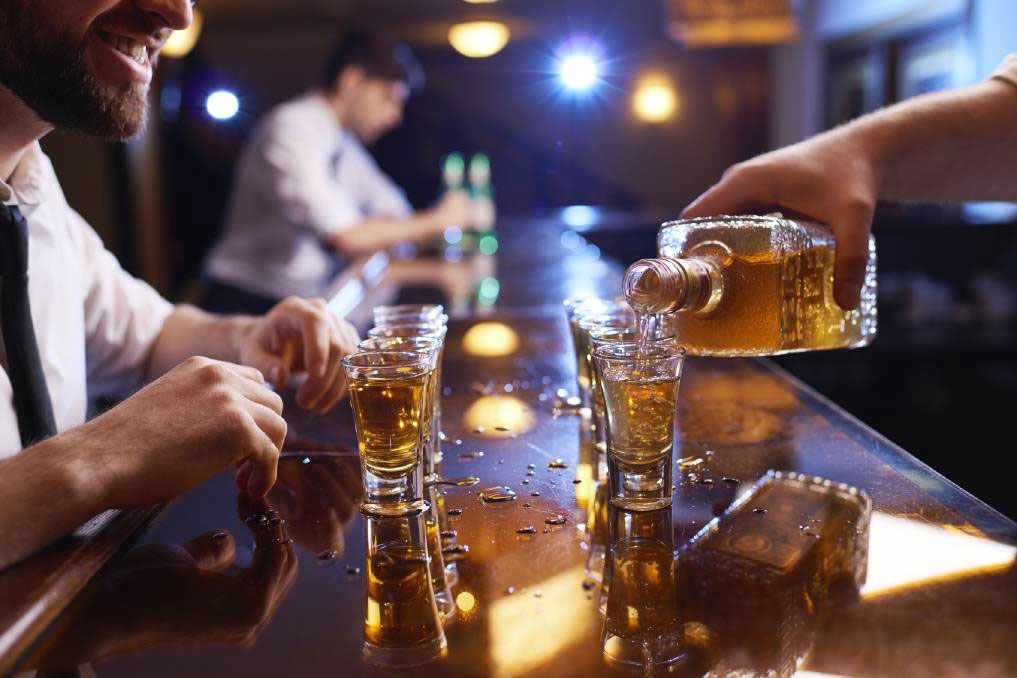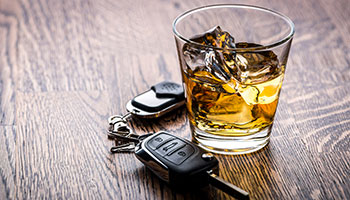- Free Consultation: (662) 466-6045 Tap Here to Call Us
Alabama Dram Shop Law
The Alabama Dram Shop Law holds businesses accountable for serving alcohol to intoxicated individuals, resulting in harm. This legislation ensures that establishments like bars and restaurants can be held liable for the actions of their visibly intoxicated patrons. By imposing this responsibility, it aims to curb the potential dangers of excessive alcohol consumption in public venues.

Liquor liability laws, including Alabama’s, serve to protect the public from the consequences of alcohol-related incidents. These laws establish clear guidelines for businesses that serve alcohol, making them more vigilant in monitoring their patrons’ behavior. The goal is to prevent accidents and injuries caused by impaired judgment due to intoxication.
- Accountability: Businesses must ensure they do not serve alcohol to visibly intoxicated individuals.
- Public Safety: Aimed at reducing alcohol-related incidents such as drunk driving and assaults.
Understanding the broader implications of liquor liability laws can help you appreciate their significance in maintaining a safer community. The Alabama Dram Shop Law exemplifies how legal frameworks strive to effectively balance business operations and public safety. By holding establishments accountable for their role in serving alcohol responsibly, the law encourages businesses to train their staff in recognizing signs of intoxication and implementing effective policies and procedures. This not only reduces the risk of harm to patrons but also helps protect the reputation and viability of the business itself.
In addition to Alabama’s Dram Shop Law, each state has its own legal framework governing liquor liability. For example, Missouri’s Revised Statute Section 537.053 establishes a unique set of guidelines for holding businesses liable in alcohol-related incidents. Consulting with experts well-versed in these specific laws can be crucial in building a strong case or mounting a robust defense.
If you are involved in a Dram Shop litigation, seeking professional guidance is paramount. Preston Rideout, Kim Schioldan, and Silver Gordon are seasoned experts with extensive experience in the field. Their expertise can prove invaluable in assessing liability, providing expert testimony, and helping navigate the complexities of alcohol service regulations.
To discuss your case and explore potential strategies, take advantage of their offer for a free consultation by calling (662) 466-6045. By tapping into their knowledge and insights, you can strengthen your position and optimize your chances of a favorable outcome in Dram Shop litigation.y.
If you find yourself embroiled in a legal case involving liquor liability, it’s crucial to have access to expert testimony that can support your position. That’s where Dram Shop Experts come into play. With extensive experience in areas like security use of force and Missouri Dram Shop Law, they offer comprehensive litigation guidance and expert witness testimony that can significantly impact your case’s outcome.
Whether you’re seeking assistance with security use of force cases or require expert testimony for Missouri Dram Shop litigation, Dram Shop Experts can provide valuable insights. Their team of experts specializes in various aspects of liquor liability law and alcohol-related injury cases, ensuring you have the necessary support throughout your legal proceedings.
To learn more about how these experts can assist you, visit their website’s practice areas section. You’ll find detailed information on the various domains they cover, including Dram Shop Expert Witness Testimony, Liquor Liability, and Alcohol-Related Injury Practice Areas.
Protecting your rights and navigating complex legal scenarios require a comprehensive understanding of relevant laws and expert opinions. With a commitment to client privacy and satisfaction, Dram Shop Experts offer a range of services encompassing Dram Shop, Liquor Liability, Alcohol-Related Personal Injury, Premise Liability, and Wrongful Death Expert Witness Opinions, Reports, Depositions, and Testimony. Their expertise can be instrumental in establishing a strong legal foundation for your case.
Understanding the Alabama Dram Shop Act
The Alabama Dram Shop Act is a legal framework established to impose liability on bar owners and operators when they serve alcohol irresponsibly. Specifically, this law targets situations where an establishment serves alcohol to an individual who is visibly intoxicated. Under these circumstances, if the intoxicated person causes harm to another party, the establishment can be held legally responsible.
Key Provisions and Liability
Key provisions include:
- Visible Intoxication: Establishments are prohibited from serving alcohol to patrons who show clear signs of intoxication.
- Third-Party Harm: Liability arises when a visibly intoxicated individual causes injury or damage to a third party.
- Proof of Negligence: The plaintiff must demonstrate that the establishment knowingly served alcohol to an intoxicated person and that this act directly led to the harm suffered.
Historical Origins of “Dram Shop” Laws
The term “dram shop” originates from 18th-century England, where small bars and pubs sold gin by the dram, a small unit of liquid measure. These laws have evolved over time to address public safety and hold establishments accountable for their role in alcohol-related incidents.
If you’re interested in exploring the history and evolution of dram shop laws further, you can refer to this informative resource on FasterCapital.
“Dram shop” laws serve as a deterrent against reckless alcohol service, encouraging businesses to adopt responsible serving practices. Each state has its own version of these laws, tailored to local needs and legal precedents.
For additional insights into how these laws are applied in different contexts, you can explore resources on Nightclub Negligence or Alcohol Intoxication Identification. These external references provide expert witness testimony and guidance on identifying intoxication levels, which can be crucial in determining liability under the Alabama Dram Shop Act.
Understanding these key aspects of the Alabama Dram Shop Act helps clarify the responsibilities placed on bar owners and operators. This legal framework not only seeks justice for victims but also promotes safer community practices.
What Qualifies as an Incident under the Alabama Dram Shop Act?
The Alabama Dram Shop Act covers a range of incidents that can lead to a lawsuit. These incidents usually involve harm or injury caused by alcohol consumption, with the establishment that served the alcohol being held responsible. The most common examples where this law is applied are drunk driving accidents and assault and battery cases.
Drunk Driving Accidents
Under the Alabama Dram Shop Act, a bar or restaurant can be held legally accountable if they serve alcohol to someone who is visibly drunk and that person later causes a drunk driving accident. Here are some key points about these cases:
- Fatalities: Sadly, many drunk driving incidents result in deaths. In such cases, the families of the victims have the right to file lawsuits against the establishments that served the intoxicated drivers.
- Injuries: Even in non-fatal accidents, serious injuries can occur. Injured individuals have the option to seek compensation for their medical expenses, lost wages, and pain and suffering.
Assault and Battery Cases
Alcohol often plays a role in violent confrontations. If a person becomes aggressive and commits assault or battery after being over-served at an establishment, that business can be held responsible. Here are some examples:
- Bar Fights: A patron who has been over-served alcohol becomes aggressive and gets into a physical fight, causing injuries.
- Domestic Violence: Alcohol consumption at a venue escalates violent behavior, leading to disputes and harm within intimate relationships.
Other Situations
While drunk driving and assault are common examples, there are other scenarios that also fall under the Alabama Dram Shop Act:
- Property Damage: If an intoxicated individual causes damage to property, the establishment may be held liable.
- Minor Consumption: Serving alcohol to minors who then cause harm can also invoke dram shop laws.
To navigate these complex legal situations, it’s advisable to consult with a Dram Shop Expert like Preston Rideout, who provides specialized services including Liquor Liability and Alcohol Service Expert Witness Testimony. Additionally, establishments can mitigate risks by implementing Responsible Alcohol Service training programs.
Understanding these types of incidents helps clarify how the Alabama Dram Shop Act works in real-life situations. Establishments must be cautious in their alcohol service practices to prevent potential liabilities arising from these circumstances. If you need assistance or wish to discuss your case, feel free to contact the Dram Shop Experts and speak with Preston Rideout at (662) 466-6045.”.
Who Can File a Lawsuit?
Eligibility for lawsuit claims under the Alabama Dram Shop Act primarily focuses on the injured victim as the claimant. This means that individuals who have suffered harm due to the actions of an intoxicated person can pursue legal action against the establishment that served alcohol to the visibly intoxicated individual.
Key Criteria for Eligibility:
- Direct Injury: The plaintiff must have sustained injuries directly caused by an intoxicated individual. This includes situations where a drunk driver causes an accident or an intoxicated person commits an assault.
- Third-Party Claims: The law allows third-party claims, meaning that not only the injured party but also their family members—such as a spouse, child, or parent—can file a lawsuit if they depend on the injured person for support.
- Visible Intoxication: A critical element is proving that the establishment served alcohol to someone who was visibly intoxicated at the time of service. This often requires witness testimony or expert opinions to establish the visible signs of intoxication.
- Causation: There must be a clear link between the service of alcohol and the subsequent injury. The plaintiff needs to demonstrate that their injuries were a direct result of the intoxication caused by the establishment’s service, which generally involves establishing causation through expert opinions or scientific evidence.
For those looking to understand their rights and options under this law, consulting with experienced attorneys is advisable. They can help navigate these specific requirements and assess whether your situation meets the necessary criteria for a successful claim.
In cases involving Alabama’s Dram Shop Law, it may be beneficial to engage with experts who specialize in providing Dram Shop Expert Witness Testimony. These professionals, such as Silver Tree Gordon, can offer valuable insights and assistance in building a strong case. Their expertise ranges from dram shop security to personal injury, premise liability, and wrongful death testimony.
Additionally, understanding the importance of responsible alcohol service and bartender training in dram shop cases can significantly impact the outcome of a lawsuit. To delve deeper into this topic, you may find the blog post on Dram Shop Law helpful. The article emphasizes the significance of complying with responsible alcohol service practices, bartender training, and intoxication identification in accordance with the law. Furthermore, it may be worth exploring the correlation between alcohol-related harm and public health concerns, as it provides a broader perspective on the issue at hand.
Limitations and Considerations
The Alabama Dram Shop Act has specific limitations that can affect the ability to win a case. One important rule is that establishments cannot be held liable for injuries sustained by individuals who were already intoxicated. In other words, if someone consumes alcohol to the point of drunkenness and subsequently gets injured, they cannot attribute blame to the business that served them.
Proving causation is another significant challenge in dram shop cases. Plaintiffs must establish a direct link between their injuries and the alcohol they consumed. This requires demonstrating the following:
- The bar or restaurant knowingly served someone who was visibly intoxicated: Witness statements or video evidence may be necessary to substantiate this claim.
- The alcohol served contributed to their state of intoxication: Medical records and expert testimony from Liquor Liability Expert Witnesses can help establish this connection.
- Their intoxication directly caused their injuries: A clear correlation must be demonstrated between their actions while under the influence and the harm they suffered.
Understanding these limitations is crucial for anyone considering a lawsuit under the Alabama Dram Shop Act. Seeking guidance from lawyers specializing in liquor liability cases, such as those at Dram Shop Experts, can provide invaluable advice on navigating these complexities.
It’s worth noting that having strong evidence and familiarity with legal intricacies can significantly impact the outcome of a dram shop case. Therefore, consulting with experts, like Dram Shop Security Expert Kim Schioldan, who can provide expert witness testimony, is highly advisable.
Recent Reforms and Future Implications
Recent changes to the Alabama Dram Shop Act have had a big impact on liquor liability laws. One of the key updates is the introduction of the Dram Shop Liability Act (SB104). This new legislation brings in fresh rules and standards, including changes to liability insurance requirements and the process for filing claims. The goal of these reforms is to find a balance between protecting businesses and helping victims seek justice.
Court decisions have also played a crucial role in shaping how this law is applied. Judges have consistently stressed that plaintiffs must prove an establishment knowingly served alcohol to someone who was visibly drunk, and that this service directly led to harm. This strict requirement is meant to make sure that businesses are careful in how they operate.
Potential Future Changes
There are ongoing discussions about other ways liquor liability laws could be updated:
- Social Host Responsibility: Talks are heating up about making private individuals responsible for serving alcohol at social events that result in harm. This could expand dram shop principles beyond just businesses.
- Online Alcohol Sales: As more and more people buy alcohol online, there are unique challenges when it comes to regulations. Lawmakers are looking into how traditional dram shop laws can be modified for digital platforms, ensuring that online sellers also follow responsible serving practices.
Key Points to Remember
Here are some important things to know about the recent reforms and court rulings:
- New Rules and Standards: The changes include updated requirements for liability insurance and stricter guidelines for how things are done legally.
- Court Decisions: There’s a focus on proving that establishments knew they were serving alcohol to customers who were clearly drunk.
For expert advice on running a bar according to industry standards or for legal testimony from a dram shop expert witness, you can consult with Dram Shop Experts. They offer services such as Industry Standard Bar Operations Expert Witness Testimony and have an experienced team of Dram Shop and Security Experts available for consultation.
Future legislative trends will likely continue to address these complex issues, ensuring that both businesses and individuals contribute to a safer drinking culture.
The Importance of Liquor Liability Insurance for Businesses
Impact on Businesses
Establishments such as restaurants, bars, and clubs are significantly impacted by dram shop laws. The Alabama Dram Shop Act holds these businesses accountable for serving alcohol to visibly intoxicated individuals who subsequently cause harm. This potential liability can be financially devastating if not properly managed. Therefore, carrying adequate liquor liability insurance is crucial.
Why Carry Liquor Liability Insurance?
Liquor liability insurance provides a financial safety net for businesses by covering legal fees, settlements, and judgments that may arise from dram shop claims. Without this coverage, establishments might face severe economic hardship from substantial legal costs and compensatory damages.
Here are some key reasons why businesses should consider carrying liquor liability insurance:
- Legal Protection: Covers defense costs in lawsuits.
- Financial Security: Mitigates the risk of large out-of-pocket expenses.
- Reputation Management: Helps maintain business integrity by addressing claims responsibly.
Risk Management Tips
Minimizing exposure to liquor liability claims involves proactive measures:
- Staff Training: Implement comprehensive training programs for employees on responsible serving practices. Ensure they understand how to identify and handle intoxicated patrons effectively.
- Policy Development: Establish clear policies regarding alcohol service and enforce them consistently.
- Monitor Consumption: Use systems to track alcohol consumption and intervene when necessary.
- Secure Premises: Maintain a safe environment to prevent altercations or accidents.
For further expertise on managing liquor liability risks, consider consulting resources like Dram Shop Experts who offer specialized services in this domain, with clients including over 100 Dram Shop & Liquor Liability Lawyers as well as numerous restaurants, nightclubs, and bars.
Responsible Serving Practices
Engaging in responsible serving practices is essential:
- Check IDs rigorously to avoid underage drinking.
- Limit drink specials that encourage excessive consumption.
- Promote alternative transportation options like ride-sharing services for patrons who may be too intoxicated to drive.
Investing in bartender training can also enhance staff readiness to manage challenging situations effectively. For professional training services, Bartender Training at Dram Shop Experts could be a valuable resource.
Effective risk management combined with proper liquor liability insurance ensures that businesses are well-prepared to handle potential legal challenges while promoting a safer drinking environment for their patrons.
Seeking Justice and Ensuring Accountability under the Alabama Dram Shop Act
If you’ve sustained injuries in an alcohol-related incident, it’s crucial to consult with a lawyer who specializes in these cases. They can guide you through the intricacies of the Alabama Dram Shop Act, which holds establishments accountable for serving alcohol to visibly intoxicated individuals or minors.
Having legal support is vital in navigating these complex cases and ensuring you receive the justice and compensation you deserve.
A balanced approach is necessary to hold both establishments and individuals accountable for preventing alcohol-related harm. This involves:
- Establishments: Implementing responsible serving practices and staff training to mitigate risks.
- Individuals: Fostering a community-wide culture of responsible drinking.
“It is the responsibility of every individual who serves alcohol to do so responsibly.” – Dram Shop Experts
To delve deeper into dram shop laws and their implications, consider reading the Dram Shop Experts blog or perusing their testimonials page for client experiences.
Ensuring accountability under the Alabama Dram Shop Act not only aids victims but also fosters a safer community. For further guidance, consult relevant resources or reach out to experts in the field, such as those at Dram Shop Experts who also specialize in Texas Safe Harbor Dram Shop Law Expert Witness Testimony.
FAQs (Frequently Asked Questions)
What is the Alabama Dram Shop Law and why is it significant?
The Alabama Dram Shop Law holds businesses accountable for serving alcohol to intoxicated individuals, resulting in harm. It aims to protect the public from the consequences of alcohol-related incidents.
What are the key provisions of the Alabama Dram Shop Act regarding bar owners’ liability?
The Alabama Dram Shop Act establishes the liability of bar owners and operators in certain situations, such as when they serve alcohol to someone who is visibly intoxicated. It is based on the concept of ‘dram shop’ laws and their historical origins.
What types of incidents are covered by the Alabama Dram Shop Act?
The Act covers incidents such as drunk driving accidents and assault and battery cases where alcohol was a contributing factor. These may be considered for a lawsuit under the Alabama Dram Shop Act.
Who is eligible to file a lawsuit under the Alabama Dram Shop Act?
Injured victims can file a lawsuit under the Alabama Dram Shop Act. They are considered as primary claimants in such cases.
What are some important limitations of the Alabama Dram Shop Act?
One important limitation is that intoxicated individuals cannot sue businesses for compensation. Another significant consideration is proving causation in dram shop cases, where the plaintiff must demonstrate that the alcohol service directly led to the harm they suffered.
Are there any recent reforms or future implications related to liquor liability legislation?
Recent law reforms, including liquor liability insurance reform, have shaped the interpretation and application of the Alabama Dram Shop Act. Potential future developments in liquor liability legislation include ongoing debates on issues like social host responsibility and online alcohol sales.
Why is carrying adequate liquor liability insurance crucial for establishments covered by dram shop laws?
Carrying adequate liquor liability insurance is crucial for establishments covered by dram shop laws because it helps minimize their exposure to liquor liability claims. Risk management tips for businesses include staff training and responsible serving practices.
How can individuals seek justice and ensure accountability under the Alabama Dram Shop Act?
Individuals harmed in alcohol-related incidents should consult an Alabama Dram Shop Law attorney to better understand the Alabama Dram Shop Act. It’s important to promote a responsible drinking culture through community-wide efforts to hold both establishments and individuals responsible for preventing alcohol-related harm.
Ray, D. (n.d.). Alabama Dram Shop Laws and Social Host Liability Rules | Nolo. www.nolo.com. https://www.nolo.com/legal-encyclopedia/dram-shop-laws-social-host-liability-alcohol-related-accidents-alabama.html


















